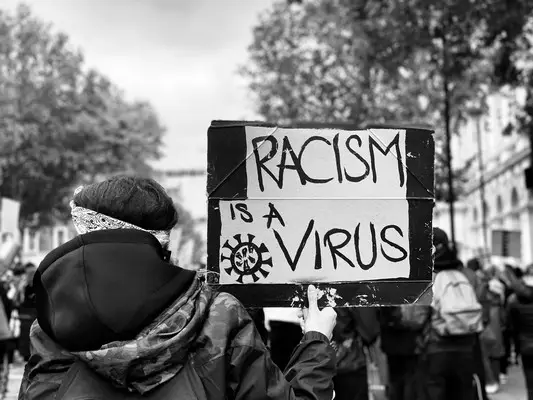Table of Contents
- Introduction
- Defining Race and Racism
- Historical Perspectives on Racism
- Understanding Different Forms of Racism
- Contemporary Expressions of Racism
- Sociological Theories Explaining Racism
- The Impact of Racism
- Addressing Racism: Strategies and Challenges
- Intersectionality and Racism
- The Role of Allyship
- Case Studies: Lessons and Insights
- Challenges Ahead
- Moving Forward
- Conclusion
Introduction
Racism remains one of the most pressing and enduring social issues of our time. Although many of us might regard racism as largely a relic of the past, it continues to shape social structures, individual perceptions, and institutional practices across the globe. In sociological terms, racism is not merely a matter of personal prejudice or bigotry; it is a phenomenon that operates at multiple levels, intersecting with power dynamics, historical contexts, and cultural norms. For undergraduates stepping into the field of sociology—or anyone seeking a foundational understanding—this guide provides an introductory overview. By exploring racism’s origins, its modern-day expressions, and possible methods to address it, readers can begin to comprehend how deeply embedded racism is in the social fabric, and why tackling it requires sustained collective effort.
Defining Race and Racism
At the core of any discussion on racism is the concept of race. Sociologists regard race as a social construct rather than a purely biological categorization. In other words, racial classifications vary across cultures and historical periods. Societies have often ascribed importance to different physical traits—skin color, facial features, hair texture—and used these differences to create categories or hierarchies.
The Social Construction of Race
When sociologists say race is socially constructed, they mean:
- Historical Processes: Colonialism, enslavement, and scientific racism solidified ideas about racial differences.
- Power Relations: Race categories often serve the interests of dominant groups by justifying unequal resource distribution.
- Cultural Interpretations: Societies interpret physical variations in ways that create “in-group” and “out-group” distinctions.
Understanding that race is a social construct highlights the artificial nature of racial boundaries—yet, despite their artificiality, these boundaries have real consequences for people’s lives. Individuals categorized as belonging to particular groups often face disadvantages in areas such as employment, education, and healthcare. Conversely, others benefit from unearned privileges.
What Is Racism?
Racism, in its simplest form, can be defined as the belief that racial categories inherently determine human traits, capacities, and social value. However, this definition only scratches the surface. In academic discussions, racism also pertains to the structural and systemic forces that perpetuate inequality based on race. This multidimensional view acknowledges:
- Personal Bias: Individual negative stereotypes or prejudices.
- Institutional Practices: Policies and actions within organizations—like schools, companies, or governments—that systematically disadvantage certain racial groups.
- Cultural Reinforcement: Media portrayals and societal norms that uphold the idea that some races are superior or inferior to others.
Historical Perspectives on Racism
Although discriminatory behavior against perceived “outsiders” has existed throughout history, the modern concept of racism is inextricably linked to the era of European expansion, colonialism, and the transatlantic slave trade. During these periods, the notion of race became a convenient rationale to subjugate and exploit different populations.
Colonial Legacies
In the age of European colonialism, racial classification served to justify conquest and exploitation. Colonizers posited that non-European peoples were “uncivilized” or “barbaric,” thereby naturalizing the subjugation of these groups for economic gain. Over time, these justifications became codified in legal and societal frameworks, paving the way for more explicit forms of institutionalized racism. The colonial legacy continues to influence contemporary societies, especially in regions once under colonial rule, where racial stratifications persist in post-colonial national identities, social hierarchies, and access to resources.
Scientific Racism
Between the 18th and early 20th centuries, pseudoscientific theories sought to lend credibility to the notion of distinct and hierarchically arranged human races. Phrenology, craniometry, and other debunked scientific methods were used to claim certain racial groups were inherently superior, intellectually and morally. While modern science has rejected these ideas, the influence of these theories lingers in societal biases and stereotypes, as their broader cultural impact was profound.
Understanding Different Forms of Racism
Racism manifests in multiple ways, and recognizing these forms is crucial to developing comprehensive strategies to combat them.
Individual and Interpersonal Racism
This dimension focuses on personal beliefs and direct interactions. Individuals may harbor prejudices, whether consciously or unconsciously, that influence their behavior toward members of other racial groups. Examples include:
- Stereotyping others based on race.
- Using racial slurs or derogatory language.
- Microaggressions, such as subtle insults or dismissals rooted in racial assumptions.
Although interpersonal racism is often more visible, it constitutes only part of the broader system of racial inequality.
Institutional Racism
Institutional racism refers to policies, practices, and procedures within institutions that disproportionately benefit or harm certain racial groups. Common examples include:
- Educational Disparities: School districts in marginalized neighborhoods may receive less funding, leading to poorer educational outcomes and fewer opportunities.
- Housing Discrimination: Historical practices like redlining restricted home ownership and property investment for racialized communities.
- Criminal Justice Bias: Over-policing of certain neighborhoods contributes to higher arrest and incarceration rates among specific racial groups.
Even if individuals within these institutions are not overtly prejudiced, institutional racism can persist through systemic barriers that maintain disadvantage.
Structural Racism
Structural racism is the overarching network of racialized institutions, norms, and practices that collectively create and reinforce racial inequalities. It captures how different institutions—such as schools, healthcare systems, labor markets, and judicial systems—interact to produce cumulative disadvantage. Unlike interpersonal or institutional racism, structural racism highlights the interdependence of social structures that sustain racial inequities over time.
Contemporary Expressions of Racism
While overt racist acts are still prevalent, contemporary racism has also taken on more subtle or coded forms.
Colorblind Ideology
Colorblindness might sound like a fair approach—treating everyone “equally” by ignoring race. However, by not acknowledging the historical and systemic disadvantages certain groups face, colorblindness ultimately perpetuates inequality. When societies adopt a colorblind stance, they fail to address specific barriers that disproportionately affect marginalized communities.
Cultural Racism
Cultural racism occurs when the cultural values, norms, or practices of a dominant group are considered superior, while those of minority groups are dismissed or seen as inferior. For instance, devaluing the way certain minority groups dress, speak, or celebrate traditions can perpetuate cultural hierarchies, fostering the notion that there is a “right” way to belong in a society.
Racial Coding and Dog Whistles
Political and media discourse sometimes uses subtle signals—often called “dog whistles”—that imply racial biases without stating them outright. For example, phrases like “law and order” can, in certain contexts, act as coded language that targets specific racial or ethnic groups perceived as criminal.
Sociological Theories Explaining Racism
A number of theoretical frameworks within sociology attempt to clarify why racism persists and how it is reproduced in society.
Conflict Theory
Rooted in the ideas of Karl Marx, conflict theory posits that society is characterized by ongoing struggles over power and resources. Racial divisions, from this perspective, serve as a way for dominant groups to maintain their power, with racism functioning as a mechanism to justify unequal distribution of resources and opportunities. By fostering division among the lower classes along racial lines, the ruling class potentially reduces the likelihood of unified opposition to the status quo.
Symbolic Interactionism
Symbolic interactionists emphasize the importance of face-to-face interactions, language, and symbols in shaping social realities. From this standpoint, racism can be perpetuated through daily encounters and symbolic gestures—sometimes so subtle that participants themselves may be unaware of their role in reinforcing racial inequalities. For example, pervasive stereotypes in mass media shape individual perceptions of certain racial groups, which in turn influence real-life interactions.
Structural Functionalism
This perspective contends that institutions and social processes exist because they have a role in maintaining stability in society. Racism, however, is generally considered dysfunctional as it leads to social tensions, conflict, and inefficiencies. Yet functionalist theorists note that historically, dominant groups may have used racism to stabilize their own social standing, creating a paradox in which discriminatory practices serve some interests while harming societal cohesion.
The Impact of Racism
Get the full article AD FREE. Join now for full access to all premium articles.
View Plans & Subscribe Already a member? Log in.





